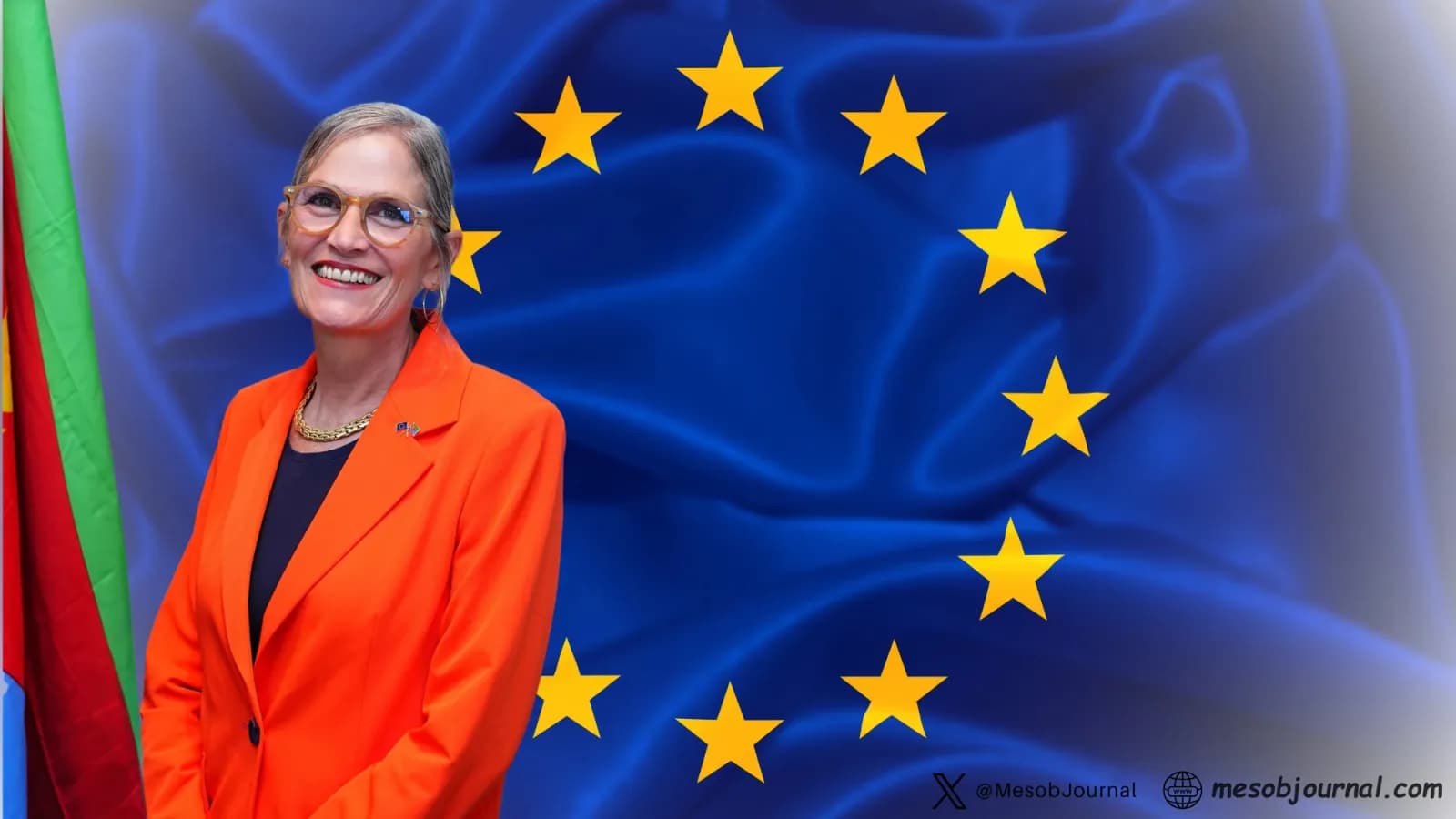EU’s New Envoy to Eritrea Signals Hope for Reset in Relations

Joanna Darmanin, the newly appointed European Union Ambassador to Eritrea, has joined the EU Delegation to Eritrea with a clear message: the EU’s engagement with Eritrea is not a passing interest but a long-term commitment grounded in stability, cooperation, and regional integration.
In her message published by the European External Action Service (EEAS), Ambassador Darmanin expressed her honor to lead the EU Delegation in Eritrea and reaffirmed that the EU’s presence is guided by “strategic interests in the region related, among others, to fostering cooperation on issues of common interest, such as the promotion of peace and security, regional integration, and economic cooperation.”
She emphasized that the EU’s efforts “follow local needs and strive to ensure local ownership and sustainability” — a phrase that resonates deeply in a country that values self-reliance and national sovereignty.
A Chance to Move Beyond Counterproductive Policies
Ambassador Darmanin’s appointment could mark the beginning of a new chapter in EU–Eritrea relations, long strained by the EU’s past approach of political conditionality and regime-change-oriented policies that have often failed to reflect realities of Eritrea’s sovereignty and regional role. Eritrea, which maintains one of the most stable coastlines on the Red Sea, has repeatedly called for partnerships built on mutual respect rather than conditionality.
Unilateral sanctions imposed by the European Union and some of its member states have for years stood in contrast to this vision — hindering constructive engagement, development cooperation, and regional dialogue. Yet, with global attention increasingly turning to the Red Sea’s strategic importance, the logic of isolationism appears not only outdated but self-defeating.
For Europe, aligning with Eritrea is not a concession; it is a strategic investment. Eritrea’s coastline guards one of the world’s busiest maritime corridors — the Bab el-Mandeb Strait — and its record of internal stability and independence remains unmatched in the region. In an era of shifting alliances and fragile states, this stability is an asset that Europe can ill afford to overlook.
Building on Shared Interests
The EU’s renewed commitment, as expressed by Ambassador Darmanin, rests on shared interests that “are here to stay and provide a solid foundation for continuous dialogue and future engagements.” This emphasis on permanence and partnership offers a pathway to rebuild trust.
Eritrea has demonstrated openness to practical, development-driven collaboration — from renewable energy initiatives to education and health infrastructure — provided that cooperation respects national priorities. A framework grounded in mutual respect could unlock dormant opportunities for both sides.
Europe’s strategic calculus should evolve accordingly. The Horn of Africa’s stability and access to the Red Sea are not abstract foreign policy concepts — they directly influence Europe’s energy routes, migration dynamics, and maritime security. Re-engagement with Eritrea, therefore, aligns with Europe’s own strategic and humanitarian interests.
A Call for Pragmatism and Partnership
As the EU recalibrates its policies in the Horn of Africa, it should also re-examine the effectiveness of punitive measures that have neither changed realities nor advanced dialogue. Sanctions have too often substituted for diplomacy; lifting them could reopen the space for genuine cooperation on regional peace, migration, and sustainable development.
Ambassador Darmanin’s words carry the promise of a more balanced and forward-looking engagement — one that respects Eritrea’s sovereignty while fostering shared goals.
If the EU truly wishes to promote peace, stability, and prosperity in the Horn of Africa, its best chance lies not in distance but in partnership — and that partnership begins in Asmara.
Related stories

AU PSC: Israel’s Somaliland move “null and void”
The African Union Peace and Security Council (PSC) has issued one of its clearest sovereignty statements on Somalia in years—explicitly condemning Israel’s unilateral recognition of the “so-called Republic of Somaliland,” demanding it be revoked, and warning that no actor has the

Eritrea Dismisses Ethiopia’s Letter, Cites Two-Year Hostile Campaign
Eritrea’s Ministry of Information has dismissed Ethiopia’s latest diplomatic message as “patently false and fabricated,” rejecting what it described as a familiar two-year pattern of hostile campaigns — and pointedly refusing to be pulled into public escalation. In a short press

Ethiopia’s MoFA Letter to Eritrea: Another Pretext in Plain Sight
Ethiopia’s Foreign Ministry has sent Eritrea a formal letter dated 7 February 2026 that reads less like a genuine diplomatic outreach and more like a paper trail for escalation. It accuses Eritrea of “occupying Ethiopian territory,” of providing “material assistance” to militan

Ex-FM Gedu Andargachew: Abiy Lied About Eritrea “Envoy” Claim
An open letter from former Ethiopian foreign minister Gedu Andargachew has directly contradicted Prime Minister Abiy Ahmed’s claim in parliament that Gedu was dispatched to Eritrea to convey Abiy’s concerns about alleged abuses against civilians in Tigray. Abiy’s parliamentar

